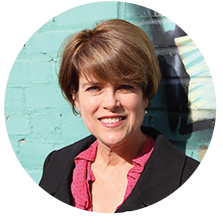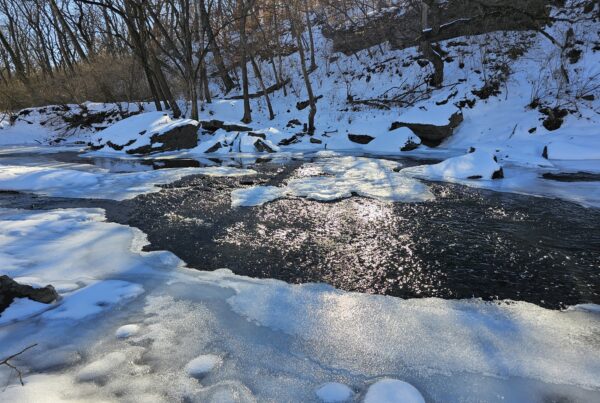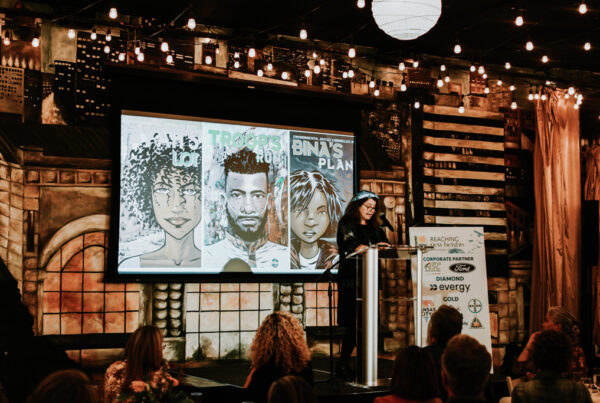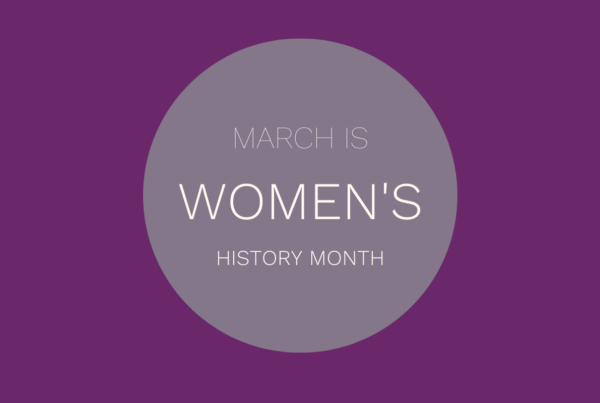March 6, 2025 —
Things I learned at BTG.
I arrived at Bridging The Gap in October 2007, pretty much without a clue. I knew how to teach about climate change, and I knew that BTG was the place I wanted to be, because I saw them taking real action. But as I first entered the narrow alley near the corner of Westport and Pennsylvania (the doorway to our former office in Westport), I had no idea that I would not only spend 17 years at BTG, but that it would make a true Kansas Citian out of me.

By Kristin Riott. Kristin is BTG’s Executive Director.
I’d come to BTG after a long career at Hallmark Cards, and in a time where women often wore high heels and pantyhose and tables wore starchy white linens. In contrast, BTG’s large conference table was made of glass, metal, and stacks of old phone books—only materials which can be fully recycled. The entire office was outfitted with heavy, scarred wooden desks—some from the 1930s. We would lug about 20 of them down three flights of stairs when we moved ourselves to our current office in the West Bottoms. My muscles still ache at the memory of it.
As for shoes, BTG’s founder and then executive director, Bob Mann, would have likely chosen to wear Birkenstock sandals to the Met Gala, relief for his running-weary feet (he’s an accomplished long-distance runner)—except that he would probably never even go to the Met Gala, a place of conspicuous, show-off-y waste and unnecessary consumption. Which brings me to the first thing I learned at BTG:
Do your best to limit consumption and waste.
We try to live the maxim “reduce, re-use, recycle” at Bridging The Gap. Every consumer product embodies materials, energy, and transportation costs, so if you can do without that product to begin with, that’s the best scenario (reduce). If you do need something, look first for a pre-existing product that still has useable life (reuse). A white Krups coffeepot had been brewing for 17 years at BTG, went home with me for a while, then came back to work for 12 more years and is still going strong. (My visiting sister once pronounced this pot and its patina “disgusting,” but, I countered, so is rampant American waste.) Don’t mind if the coffee in it is a day or two old, either. Coffee is water-intensive and shipped here from the far corners of the earth; so drink it anyway. Or drink locally-made kombucha instead. Cold in winter? Buy Pact long johns recommended by John, one of BTG’s longtime employees, and wear them for the next two decades. Keep your thermostat at 65 degrees—lots of Kansas Citians are forced to live without heat at all. Insulate your rim joists, too, if you can.
We do everything we can to avoid new, disposable, one-time-use “convenience” products with completely unnecessary packaging, such as bottled water. I’m proud to say that, after asking our BTG followers to pledge to not drink bottled water, I have not drunk a single packaged water bottle in 17 years. It hasn’t been hard at all.
One of the first people I encountered at BTG was Becki, our then finance and operations director. I had no idea that she would become one of the most important people in my life, a role model with an unerring sense of justice and the lowest carbon footprint humanly possible of anyone I’ve ever personally known. Becki has lived off the grid for about 8 years, for much of that time in a 100-square-foot garden shed that she wired up to free solar panels she got off Craig’s List, so that a tiny air conditioner could run in her loft in summertime. She had a composting toilet to avoid unnecessary water use, grew her own food, and is a quietly dedicated vegan, declining to participate in systems that cause animal suffering. Her coffee is Free Trade and so are her clothes, of which she owns a minimum. Gentle, quiet, lovely, and completely natural (no makeup, no pantyhose), Becki embodies another of BTG’s maxims:
No judgments.
Becki would delicately refuse a piece of hard candy, while I sucked noisily away on three. Why? The list of ingredients included butter, causing a cow to be miserably hooked up to machines and milked all day. But she wasn’t judging me nor my jaw bulging with butter. (She was laughing at me instead.) In a discussion once about salads from local farmers’ markets, I asked her, “What do you do in the winter, then?” She said gently, “I probably just wouldn’t eat those foods in the winter. But I wouldn’t judge you if you do.” From Becki and Bob, I learned that, even if someone is driving a Hummer too fast and throwing cigarette butts out the window, help them fill that Hummer with a carpool full of people, which makes it more efficient than a Prius with a single driver. Get them engaged in planting trees. To judge would be hypocrisy, for we’re all doing harm to the environment, and we’re not always aware of how.
For 17 years, I’ve kept straight up on this learning curve, and I’m on it still today.
We’re more powerful together, and accomplish much more, than by ourselves.
People learn best and most deeply by doing.
Think like a partner. Welcome new ways to partner, and new partners.
Water is heavy, and energy-intensive to push around.
People fear and dislike trees, because they have no idea how trees benefit them.
Redlining and other injustices are alive and well in KC. We need to be deeply intentional in reinvesting in oppressed communities.
Complaint-based municipal systems (potholes, snow, trees) always favor the affluent.
Insulating your home and eating a mostly plant-based diet are two of the biggest ways to decrease your impact on the planet and improve your health and pocketbook.
Losing 30% of the world’s insect mass is one of the biggest threats we face. Restore their habitat in KC by volunteering for KC WildLands and replacing your yard with native plants.
Kansas City’s original eco-system is a blend of tallgrass prairie and the edge of the eastern woodlands. It’s one of the most unique, beautiful, and endangered in the world.
And finally, not from Bridging The Gap but from my college roommate , who taught for 42 years in Indianapolis public schools: People who don’t live a life in public service have no idea how rich it really is.
Thank you, Bridging The Gap. What a privilege it’s been.






